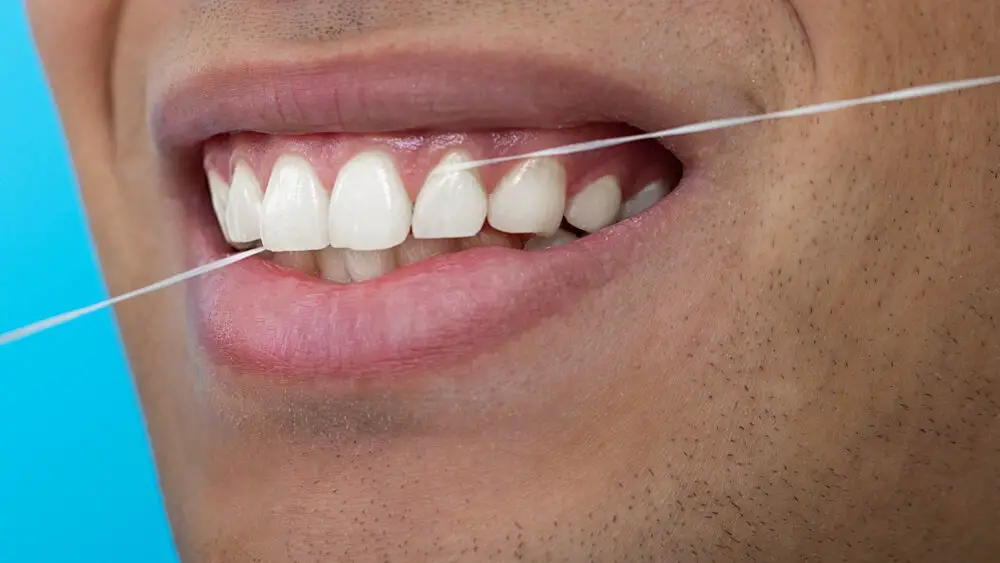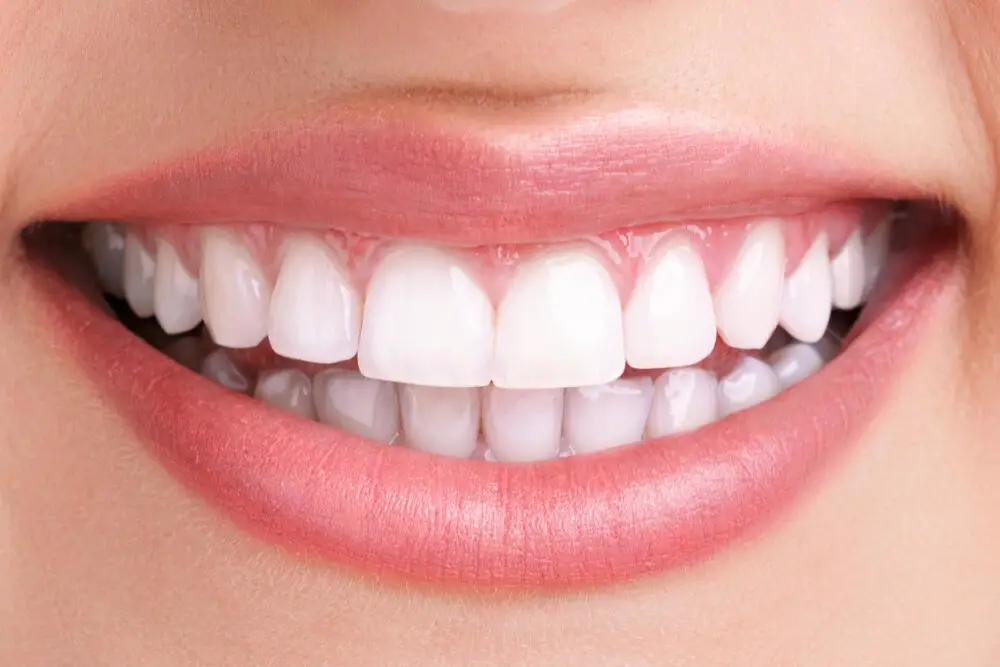Why Chewing Gum Causes Tooth Pain: Explained by Dental Experts

Chewing gum, a favored pastime for many, can lead to tooth pain for some. While it may seem like a harmless habit, the repeated motion of chewing can cause discomfort and even damage to your teeth. Dental experts have studied this phenomenon and have found several reasons why chewing gum can lead to tooth pain. So, if you’ve ever experienced tooth pain while chewing gum, read on to find out why. The primary reason why chewing gum causes tooth pain is due to the pressure it places on your teeth and jaw. Every time you chew, you are exerting force on your teeth, which can cause them to become sore and sensitive. Additionally, many people tend to chew gum on one side of their mouth, leading to uneven pressure distribution and further exacerbating any existing dental issues. However, tooth pain caused by chewing gum is not always a cause for concern. In some cases, it may simply be a sign that your teeth are sensitive. Nevertheless, it’s always best to consult with a dental professional to ensure that there are no underlying dental problems that need attention.
Chewing gum has been a popular pastime for many years, and its popularity can be attributed to several factors. One of the biggest reasons for its popularity is its ability to freshen breath and improve oral hygiene. Chewing gum stimulates saliva production, which helps to neutralize the acids in the mouth and wash away food particles that can cause bad breath. Additionally, many people find that chewing gum helps to relieve stress and anxiety, making it a popular choice for those who are looking for a quick and easy way to relax. Finally, chewing gum is widely available and relatively inexpensive, making it a convenient option for those who want to enjoy its benefits without breaking the bank.
Tooth pain caused by chewing gum is a common dental problem that can be caused by several factors. Firstly, the act of chewing gum can put pressure on already sensitive teeth, causing pain and discomfort. Secondly, many types of chewing gum contain sugar or artificial sweeteners that can lead to tooth decay and cavities if not properly brushed away. Finally, chewing gum for extended periods of time can lead to jaw pain and headaches, as well as wearing down the enamel on the teeth. Overall, while chewing gum can have some benefits for oral health, it is important to be mindful of the potential risks and take steps to protect teeth and gums from damage.
The Mechanics of Chewing Gum

Chewing gum is a popular habit among people of all ages. It is a simple and enjoyable way to freshen breath, relieve stress, and even improve concentration. However, the mechanics of chewing gum can lead to tooth pain, which is a common dental issue that many people experience. When you chew gum, your jaw muscles work to grind the gum against your teeth and palate. This repetitive motion can cause strain on your temporomandibular joint (TMJ), which connects your jawbone to your skull. Over time, this strain can lead to TMJ disorder, which can cause pain, clicking, and locking of the jaw. Another factor that contributes to tooth pain from chewing gum is the sugar content. Many types of gum contain high levels of sugar, which can lead to tooth decay and cavities. When you chew gum, the sugar sticks to your teeth and can be difficult to remove with brushing alone. This can create an environment for bacteria to thrive and cause damage to your teeth. Additionally, some people may have a sensitivity to the artificial sweeteners used in sugar-free gum, which can also lead to tooth pain. Overall, while chewing gum can have some benefits, it is important to be mindful of the potential risks to your dental health.
The physical process of chewing is an intricate mechanism that involves multiple muscles and teeth working in unison. When we take a bite of food or gum, our teeth begin to grind and crush it into smaller fragments. The tongue and cheeks help move the food around, and saliva mixes with it to form a bolus that can be swallowed. The act of chewing stimulates the salivary glands, which produce enzymes that aid in digestion. The process also increases blood flow to the oral cavity, which helps maintain healthy gums and teeth. However, excessive chewing of gum or hard foods can put undue stress on the teeth and jaw, leading to tooth pain and even damage to dental restorations. Proper oral hygiene and moderation in chewing habits can prevent these issues.
During chewing, the teeth experience different types of forces that can result in tooth pain if not properly managed. The primary force is compression, which occurs when the teeth are pressed together during the biting and grinding process. This compression force can cause microfractures in the tooth enamel, leading to sensitivity and pain. Additionally, there is shearing force, which happens when the teeth slide against each other during chewing. This force can cause abrasion and wear on the tooth surface, further increasing the risk of tooth pain. Finally, there is torsion force, which occurs when the teeth twist or rotate during chewing. This force can lead to damage to the tooth roots and surrounding tissues, causing significant discomfort. Understanding the different forces exerted on teeth during chewing is crucial in preventing tooth pain and ensuring proper oral health.
Chewing gum is often considered a harmless habit that can freshen breath and relieve stress, but its impact on dental health is not to be ignored. While sugar-free gum can actually help prevent tooth decay by stimulating saliva production and neutralizing harmful acids in the mouth, chewing gum excessively or with sugar can lead to tooth erosion and sensitivity over time. The constant chewing motion can also cause jaw pain and discomfort, as well as damage to dental restorations such as fillings and crowns. It is important to practice moderation and choose sugar-free options when indulging in this popular pastime to maintain optimal dental health.
Gum Composition and Tooth Sensitivity

Chewing gum is a popular pastime for many people, but it can also cause tooth sensitivity. The composition of gum plays a significant role in this issue. Most chewing gums contain sugar, which can lead to tooth decay and erosion. Sugar-free gums, on the other hand, contain artificial sweeteners, which are less damaging to the teeth. However, some sugar-free gums contain acidic ingredients, such as citric acid or phosphoric acid, which can also cause tooth sensitivity. These acids can dissolve the enamel, the protective layer of the tooth, and expose the dentin, the sensitive part of the tooth. Over time, this can lead to tooth sensitivity, pain, and even tooth decay. Therefore, it is essential to choose a gum that is low in acidity and sugar, or opt for a sugar-free gum that contains xylitol, a natural sweetener that promotes dental health. Tooth sensitivity is a common problem that affects many people. It is characterized by a sharp pain or discomfort when eating or drinking hot, cold, sweet, or acidic foods. Tooth sensitivity is often caused by the exposure of the dentin, the sensitive part of the tooth, due to the erosion of the enamel or the gum recession. Chewing gum can exacerbate tooth sensitivity by increasing the pressure and friction on the teeth and gums, especially if the gum is hard or contains abrasive ingredients, such as silica or alumina. Furthermore, some people have a habit of chewing gum on one side of the mouth, which can cause uneven wear and tear of the teeth and lead to tooth sensitivity. To avoid tooth sensitivity caused by chewing gum, it is recommended to choose a soft and non-abrasive gum, chew it on both sides of the mouth, and avoid chewing it for prolonged periods. In addition, practicing good oral hygiene, such as brushing twice a day, flossing daily, and using fluoride mouthwash, can help prevent tooth sensitivity and maintain dental health.
Chewing gum is a popular pastime for many people, but few know what ingredients are contained within them. Most chewing gums contain a base of synthetic polymers that are combined with softening agents such as glycerin, sugar, and corn syrup. These ingredients give chewing gum its sticky texture and sweet taste. Other common additives include flavorings, such as mint or fruit, and preservatives to extend shelf life. However, some chewing gums also contain ingredients that can cause tooth pain such as citric acid, which can erode tooth enamel, and aspartame, an artificial sweetener that can cause tooth sensitivity. It is important to read the label carefully and choose gum that is low in sugar and acid to avoid dental problems.
Certain ingredients present in food and drink products can lead to tooth sensitivity. For example, acidic substances like citric acid or vinegar can erode the enamel on the teeth, making them more vulnerable to pain and sensitivity. Similarly, high-sugar foods and drinks promote the growth of harmful bacteria in the mouth, which can cause tooth decay and sensitivity. Additionally, some artificial sweeteners, like sorbitol, can cause dehydration in the mouth, leading to a decrease in saliva production and an increase in tooth sensitivity. When chewing gum containing these ingredients, the act of chewing can exacerbate the pain by putting pressure on the already sensitive teeth. Therefore, it’s important to be mindful of the ingredients in the foods we consume and to take steps to protect our teeth against sensitivity.
Tooth sensitivity is a common dental issue that can lead to discomfort and pain, especially when chewing gum. This condition is caused by the exposure of the dentin layer of the tooth, which contains small tubules that lead to the nerve endings. When this layer is exposed, it can cause a sharp and sudden pain when the teeth are exposed to hot or cold temperatures, sweet or sour foods, or even pressure from chewing. Chewing gum, in particular, can exacerbate this sensitivity as it requires repetitive jaw movement and pressure on the teeth, leading to discomfort and pain. Dental experts recommend seeking treatment for tooth sensitivity to prevent further damage and alleviate the discomfort associated with chewing gum and other daily activities.
Gum Flavorings and Tooth Pain

Gum flavorings are one of the main culprits behind tooth pain caused by chewing gum. These flavorings contain acids that can erode tooth enamel, making teeth more susceptible to sensitivity and pain. Additionally, the sugar in gum can feed harmful bacteria in the mouth, leading to tooth decay and cavities. When combined, these factors can cause significant discomfort and even damage to the teeth and gums over time. Tooth pain from gum chewing can also be exacerbated by pre-existing dental conditions, such as gum disease or tooth decay. These issues make the teeth and gums more sensitive, making it more likely that chewing gum will cause discomfort. In some cases, even the act of chewing itself can put additional stress on already weakened teeth, leading to pain and sensitivity. For those with dental issues, it may be best to avoid chewing gum altogether or to stick to sugar-free options that are less likely to cause damage.
Flavorings are essential components in chewing gum that contribute to determining the taste and aroma experienced by the chewer. These flavorings are typically composed of natural or synthetic compounds that are carefully selected and blended to create a unique flavor profile. Popular flavorings for chewing gum include fruit flavors such as strawberry, watermelon, and grape, as well as minty flavors like spearmint and peppermint. In addition to providing a pleasant taste, some flavorings also have functional properties such as breath freshening, saliva stimulation, and oral hygiene benefits. However, some flavorings may also contribute to tooth pain in susceptible individuals, as they can irritate the sensitive tissues of the mouth or cause tooth decay if left in contact with the teeth for prolonged periods.
Flavorings are usually added to chewing gum to make it more appealing to consumers. However, these flavorings can cause tooth pain due to their acidic nature. When acidic compounds come in contact with the teeth, they can erode the enamel, which is the protective outer layer of the tooth. This can lead to tooth sensitivity and pain. Additionally, some flavorings contain sugar, which can promote the growth of harmful bacteria in the mouth. These bacteria can also contribute to tooth decay and gum disease, both of which can cause tooth pain. Therefore, it is important to choose sugar-free chewing gum and limit consumption to reduce the risk of tooth pain and other dental problems.
Artificial sweeteners have been a popular alternative to sugar in many foods and beverages due to their low-calorie content. However, their impact on dental health has been a topic of much debate. While artificial sweeteners do not directly cause tooth decay, they can still have negative effects on dental health. Some artificial sweeteners can change the pH balance in the mouth, leading to the growth of harmful bacteria and an increase in the risk of cavities. Additionally, many sugar-free chewing gums that contain artificial sweeteners can stick to teeth, which can lead to tooth pain and sensitivity. It is important to practice good oral hygiene and limit the consumption of sugary and artificially sweetened foods and drinks to maintain optimal dental health.
Gum Chewing Habits and Tooth Pain

Gum chewing habits have become a common practice for many people, especially those who want to keep their breath fresh and their teeth clean. However, some individuals may experience tooth pain when they chew gum, which can be a frustrating and uncomfortable problem. Dental experts have explained that the primary reason for tooth pain from chewing gum is due to excessive force and pressure on the teeth and gums. When a person chews gum, they are constantly applying pressure to their teeth and gums, which can cause them to become sore and sensitive. Additionally, the sugar and additives in some types of gum can also aggravate tooth pain by causing decay and inflammation. To minimize the risk of tooth pain from gum chewing, dental experts recommend choosing sugar-free gum that is gentle on the teeth and gums. It’s also important to chew gum in moderation and avoid chewing for long periods, as this can increase pressure on the teeth and gums. Additionally, individuals who already suffer from tooth pain or sensitivity should avoid chewing gum altogether or speak with their dentist to determine the best course of action. By taking these precautions, individuals can continue to enjoy the benefits of gum chewing without experiencing uncomfortable tooth pain.
The frequency and duration of gum chewing can have a significant impact on dental health. Chewing gum for extended periods can lead to jaw muscle fatigue and cause joint pain, while excessive chewing can increase the risk of tooth decay and erosion. Additionally, chewing gum with high sugar content can promote the growth of bacteria in the mouth, leading to plaque formation and cavities. On the other hand, chewing sugar-free gum can stimulate saliva production, which helps to neutralize acid and wash away food particles, reducing the risk of tooth decay. Ultimately, it is essential to practice moderation and choose sugar-free gum to enjoy the benefits without compromising dental health.
Chewing gum is a popular activity that many people enjoy, but it can have negative effects on dental hygiene. When individuals chew gum, they produce more saliva, which can help to neutralize the acids in the mouth that cause tooth decay. However, if the gum contains sugar, it can lead to tooth decay and cavities. Additionally, gum chewing can cause jaw muscle fatigue, which can lead to headaches and other discomfort. For those who are trying to maintain good dental hygiene habits, it is important to choose sugar-free gum and limit the amount of time spent chewing. Regular brushing and flossing are also essential to keep teeth and gums healthy.
Moderation is key when it comes to chewing gum, as excessive chewing can lead to tooth pain and other dental problems. Chewing gum can be a great way to freshen your breath and improve your oral health by increasing saliva production, which helps to neutralize acids produced by bacteria in the mouth. However, chewing gum for extended periods of time or chewing on the same side of your mouth repeatedly can cause strain on the jaw muscles, leading to headaches and even temporomandibular joint disorder (TMD). Additionally, some gums contain high amounts of sugar or artificial sweeteners, which can contribute to tooth decay and other dental issues. Therefore, it is important to chew gum in moderation and choose sugar-free options to minimize the risk of dental problems.
In the article “Why Chewing Gum Causes Tooth Pain Explained by Dental Experts,” dental professionals explain the reasons behind the discomfort some people experience when chewing gum. The main culprit is the way gum stimulates the teeth and jaw. Chewing gum can cause the teeth to grind against each other, leading to tooth sensitivity and pain. Additionally, the repetitive motion of chewing can strain the muscles and joints in the jaw, leading to temporomandibular joint disorder (TMJ). To avoid these issues, it is recommended to chew sugar-free gum and to take breaks from chewing to give the muscles and joints in the jaw a rest.
Chewing gum is a popular habit for many people, but it can cause tooth pain if not done properly. To minimize tooth pain caused by chewing gum, it is recommended to choose sugar-free gum as it is less likely to stick to teeth and cause decay. It is also important to avoid excessive chewing and to take breaks from chewing to allow the jaw muscles to rest. Additionally, maintaining good oral hygiene habits such as brushing and flossing regularly can prevent tooth pain and decay. If tooth pain persists, it is important to consult a dental expert for further evaluation and treatment. By following these tips, you can continue to enjoy chewing gum without experiencing tooth pain.
In conclusion, chewing gum is a popular habit that can have negative consequences on our oral health. The constant pressure and friction on the teeth can cause tooth pain, especially if the gum is sugar-based. Moreover, chewing gum for extended periods can also lead to jaw muscle fatigue and headaches. However, not all types of gum are harmful, and sugar-free options can actually have some benefits, such as increasing saliva production and reducing bad breath. Ultimately, it’s crucial to be mindful of our chewing habits and choose our gum wisely to maintain good oral health and avoid unnecessary discomfort.
Conclusion

In conclusion, the phenomenon of tooth pain caused by chewing gum has been explained by dental experts through various factors such as the presence of sugar or artificial sweeteners, the excessive use of jaw muscles, and the erosion of tooth enamel. It is essential to understand that oral health is crucial, and any discomfort or pain should not be ignored. It is recommended to choose sugar-free gum and chew it in moderation to avoid any adverse effects on dental health. Additionally, maintaining a proper oral hygiene routine, including brushing and flossing regularly, and visiting a dentist for checkups, can help prevent tooth pain and ensure overall oral health.







